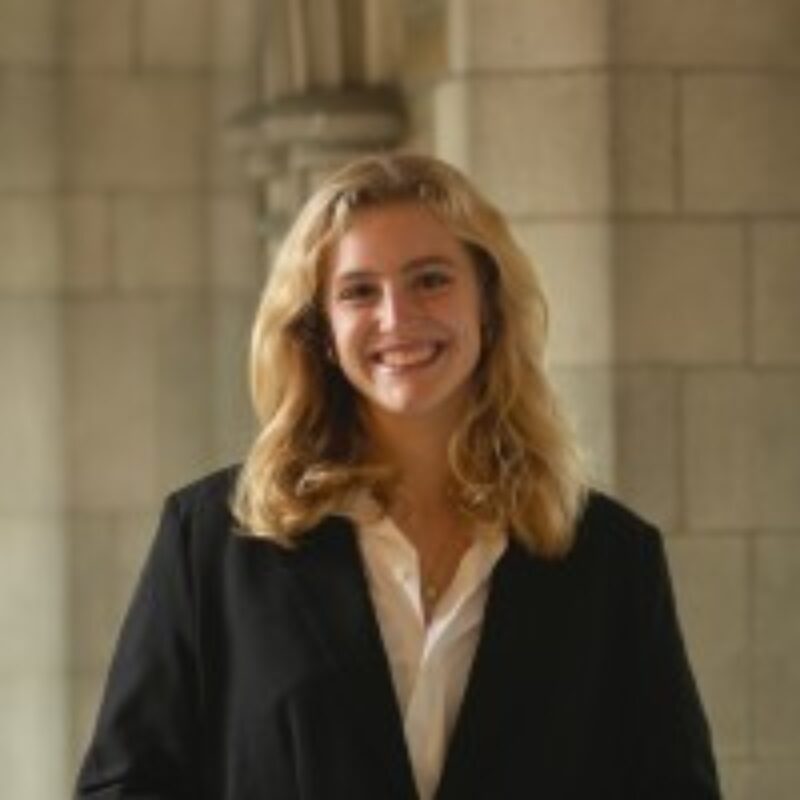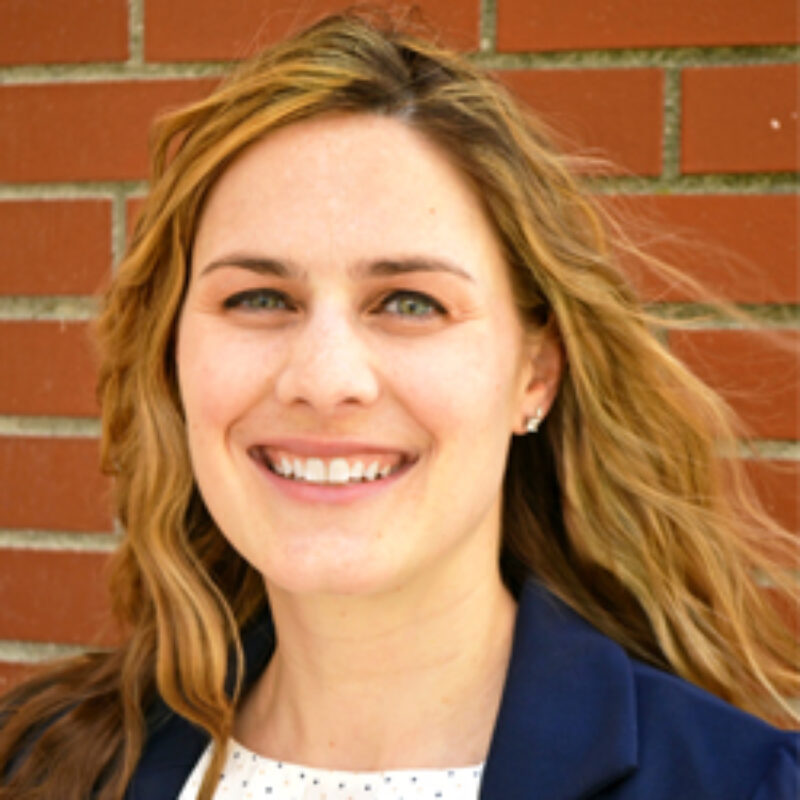Faculty Advisory Committee on Athletics and Physical Education (FACAPE)
- Concerned with how the programs of the Department of Athletics and Physical Education can best complement and support the overall educational objectives of the University.
- Issues include: academics, admissions, the student athlete, working with the NCAA, the IVY league, and the ECAC, and the PE requirement.
Members

Andi Garcia-Ortiz
Graduate student, voting privileges
Term Ends: 6/30/26
CALS
Term Ends: 6/30/28

Zora deRham
Undergraduate student, voting privileges
Term Ends: 6/30/26
SC Johnson College of Business
Term Ends: 6/30/27
AAP
Term Ends: 6/30/27
Arts & Sciences
Term Ends: 6/30/27
Engineering
Term Ends: 6/30/27
Red Key Honor Society
Co-President
Red Key Honor Society
Co-President
Director of Athletics
Ex Officio
Veterinary Medicine
Chair
Term Ends: 6/30/27
SC Johnson College of Business
Term Ends: 6/30/26
Veterinary Medicine
Term Ends: 6/30/26
Arts & Sciences
Term Ends: 6/30/27
Associate Dean of Faculty
Ex Officio
Dean of Faculty
Ex Officio
Attends Meetings:
Faculty Athletic Representative (FAR) – John Sipple
Athletic Specialist – Amy Foster
PE Representation – Jen Gudaz
Associate AD for Student-Athlete Support – Interim Amy Foster
*no voting privileges
Bylaws
Charge
- The role of the Cornell Faculty Advisory Committee on Athletics and Physical Education is to provide advice on how the programs of the Department of Athletics and Physical Education can best complement and support the overall educational objectives of the University.
- The committee will consult with the Athletic Director regarding how to assure an intercollegiate, physical education, intramural, and recreational program of the highest quality. In doing so, the Committee will become familiar with and provide counsel regarding the following matters:
- Areas of continuing interest to Cornell and the Department, including admissions, academic performance of student athletes, and the overall programs, goals, and objectives of the Department.
- Issues facing the NCAA, ECAC and Ivy League.
- Schedules for fall, winter, and spring seasons for each team and the guidelines for leaves and absences for intercollegiate teams.
- The physical education requirement for students (including administering the procedure of hearing appeals from students regarding their physical education requirement for graduation). Hearing appeals from students regarding their physical education requirement for graduation).
- In addition, the committee will review and help develop in conjunction with individual athletic academic advisors:
- A strong academic advisement system for student athletes.
- A series of seminars for all freshmen athletes to cover library skills, study and reading skills, expectations of a student athlete at Cornell, etc.
- A series of meetings with the captains of the intercollegiate teams to discuss athletics and academics, and the role of the captains as academic role models.
- Procedures for working with individual academic problem cases.
Composition
Nine members of the faculty, appointed with the concurrence of the Faculty Senate, by the Nominations and Elections Committee for three-year terms.
Two student members (of which at least one shall be an undergraduate) with voting privileges, selected annually by the Staffing Committee of the Student Assembly. Reselection of a student for a second year shall be permitted. Co-presidents of the Red Key Honor Society.
The Director of Athletics is ex officio.
Except as noted specifically the committee shall be organized and operate under the rules and procedures governing standing committees of the Faculty Senate.
Adopted by the Faculty Council of Representatives, December 9, 1987, Records, pp. 6530-44C, Appendices A and B. Changes in nomenclature from FCR to Faculty Senate, and to reflect amendments to Organization and Procedures of the University Faculty, October 1995.
Where not listed as a member or chair, both the Dean of Faculty and the Associate Dean and Secretary of the Faculty, shall be a ex officio members of each committee of the University Faculty and each committee of the Senate. (Faculty Handbook, Article V Section D Part 7) (Faculty Handbook, Article VI Section A Part 3)
2024-25 Annual Report
To: Dean De Rosa
From: Ashleigh Newman, Chair
Date: June 30, 2025
Subject: FACAPE Annual Report
Summary of meetings and attendees
FACAPE met on September 19, 2024 via Zoom and on April 9, 2025 in person
(with Zoom option) for our regularly scheduled meetings (once per semester). There was a special meeting via Zoom on January 31, 2025 with special guest Patty Grace who provided a high-level overview of Cornell Admissions policies as it pertains to athletics.
As shown below, FACAPE consists of engaged faculty and non-voting staff members who regularly attend meetings. Student engagement could be improved. Meeting agendas and minutes from this year are archived on FACAPE’s Box folder.
Fall meeting attendance:
| Ashleigh Newman | ✓ | Zora deRham | Nicki Moore | ✓ | |
| Doug Antczak | ✓ | Ocean Karim | Eve DeRosa | ||
| Kendra Bischoff | ✓ | Samantha Engel | ✓ | Chelsea Specht | |
| Natalie Capiro | ✓ | Soodong Kim | |||
| Brian Dillon | John Sipple* | ✓ | |||
| Tom Fox | ✓ | Amy Foster* | ✓ | ||
| Yuval Grossman | ✓ | Jen Gudaz* | ✓ | ||
| Kevin Kniffin | ✓ | Devan Carrington* | ✓ | ||
| Jennifer Newsom | ✓ |
Spring meeting attendance:
| Ashleigh Newman | ✓ | Zora deRham | Nicki Moore | ✓ | |
| Doug Antczak | ✓ | Ocean Karim | Eve DeRosa | ||
| Kendra Bischoff | ** | Samantha Engel | ✓ | Chelsea Specht | ✓ |
| Natalie Capiro | ✓ | Soodong Kim | |||
| Brian Dillon | ✓ | John Sipple* | ✓ | ||
| Tom Fox | ✓ | Amy Foster* | ✓ | ||
| Yuval Grossman | ✓ | Jen Gudaz* | ✓ | ||
| Kevin Kniffin | Tiana Dockery* | ✓ | |||
| Jennifer Newsom | ✓ |
*attends meetings, no voting privileges
**on sabbatical leave
2024-25 FACAPE goals and outcomes
As the new chair of this committee, I worked to create a list of goals for FACAPE in consultation with Amy Foster, Senior Deputy Athletics Director for the Student-Athlete Experience. These goals were discussed at the Fall 2024 meeting and are available to all committee members in our Box folder. This report offers an excellent opportunity to evaluate our progress on these goals.
- Increase student engagement in the committee
Background: student attendance and participation in FACAPE meetings has been historically low.
Actions: I emailed all student members (Red Key Co-Presidents and Undergraduate and Graduate representatives) after the fall meeting to encourage them to attend and actively contribute with the committee’s work. I invited the Student-Athlete Advisory Committee (SAAC) Co-Presidents to our spring meeting to present their proposal for early course enrollment for student-athletes. I provided written input on their proposal ahead of the meeting, which they thoughtfully incorporated into their revised version shared with FACAPE.
Outcome: Unfortunately, student committee member attendance did not improve for the spring. However, the SAAC Co-Presidents attended the spring meeting and received positive feedback and concrete suggestions from committee members, which was helpful in their preparation for their Student Assembly presentation. Resolution SA R50: Ensuring Fair Course Access for Student Athletes was adopted by the Student Assembly and conveyed to the President.
- Increase committee membership awareness of pertinent policies
Background: While the Chair works closely with Athletics staff on the Missed Class Time Policy and to approve teams’ missed class time, each committee member can serve as an ambassador for this committee and Cornell student-athletes in their academic homes.
Actions: I updated and organized FACAPE’s Box folder, which had previously gone un-used. Sub-folders include: Admissions, agendas and minutes, charge and policies, FACAPE annual reports, PE and recreation, Real Response feedback, relevant Faculty Senate resolutions, team faculty liaisons, and team GPA summaries. As pre-read materials for the Fall 2024 meeting, I provided committee members with the FACAPE Bylaws, missed class time policy, an example missed class time sheet, varsity athlete accommodations (from the Faculty Handbook), and the free-time zone ([FTZ] from the Faculty Handbook).
Outcome: Committee members are now well-informed on the policies that impact Cornell student-athletes and can now readily access the above materials pertinent to athletics and physical education at any time.
- Highlight Cornell student-athlete achievements
Background: Cornell student-athletes are excelling academically (as well as athletically), and the administration should be aware of and celebrate this. When I attended the spring 2024 400 club breakfast (event to recognize varsity student-athletes receiving ≥4.0 GPA), I was disappointed that besides the Athletics Director, there were no high-level administration members in attendance.
Action: In my fall meeting with Dean DeRosa, I relayed this concern and asked if the President and/or Provost would consider attending the 400 Club Breakfast to demonstrate the administration’s recognition and support of the academic success of our student-athletes.
Outcome: Dean DeRosa shared this invitation with President Kotlikoff who was reportedly very happy to be invited and confirmed his attendance. Perhaps in the future, an annual list of Cornell 400 Club Members and their respective sports could be included in a University publication, such as The Cornell Chronicle.
Unrelated to this committee’s efforts, but equally important to recognize – Nikki Moore shared in our spring meeting that President Kotlikoff hosted a series of dinners with all varsity head coaches to meet and discuss their concerns and/or challenges they face in their work. Coaches greatly appreciated this opportunity and sign of support for athletics from the President. Similarly, President Kotlikoff, Provost Kavita Bala, VP Student & Campus Life Ryan Lombardi, Dean of Students Marla Love, and Deans of all Cornell’s undergraduate colleges were in attendance for the special graduation ceremony held for the 2025 National Champions Cornell Men’s Lacrosse team on May 27, 2025. John Sipple (NCAA Faculty Athletic Representative) and I were also invited and in attendance to show our support. It was wonderful to see Cornell leadership and the academic deans celebrate the success of these phenomenal student-athletes. As Ryan Lombardi said, this team brought Cornell together and gave us all something to cheer for. That is the power of collegiate athletics, and I sincerely hope something that Cornell leadership continues to champion.
- Broader faculty engagement
Background: There are several women’s sports who lack a Team Faculty Liaison (TFL), while some sports have multiple TFLs. It would be ideal to ensure all sports have a TFL and for these “athletics-friendly” faculty to support the coaches from all sports, mostly regarding meeting with recruited student-athletes, but also in building additional connections between academics and athletics. John Sipple had started this effort creating a “Non-specific team supporters” list.
Actions: During the Good of the Order at the December 11, 2024 Faculty Senate meeting, I made a call for faculty interested in serving as a TFL and a resource for the coaches of all varsity teams to contact me. I created a shared Google sheet with tabs for each Cornell college and lines for each department within that college, and populated it with names and contact info for all volunteers to date.
Outcome: Following this call, eight additional faculty members reached out to serve as TFLs and a resource for all athletic coaches. Now all teams except one women’s and one men’s team have at least one TFL. Committee member Doug Antczak also recruited three new, enthusiastic faculty from the Vet College to serve as TFLs for the equestrian and polo teams.
The shared Google sheet is a living document that has been shared with all FACAPE members to encourage them to recruit additional faculty members in their colleges to participate, as well as Amy Foster and Nikki Moore to share with all varsity coaches as a resource.
- Data collecting projects
Background: Amy Foster conveyed that there seems to be more variability in course scheduling (less set MWF or TR times), which makes it difficult for athletes to schedule daytime individual skills sessions in sports that necessitate these. There is also a sense that there has been more encroachment on the FTZ by newly approved courses or special speakers that students can attend for extra credit. While there have always been exceptions (e.g., studio courses), the question is – are there in fact more academic happenings in the FTZ? And while there has to be another opportunity outside the FTZ for a student to do, these may not be the courses or speakers that the student-athletes are academically interested in.
I discussed this with Dean DeRosa in our fall meeting. She confirmed that exceptions included 3-hour studios, physical education, and live where you are courses. The following are allowed in the FTZ: visiting speakers, additional meeting times, review sessions, makeup sessions, office hours, with the latter requiring also an option outside the FTZ.
Action: Dean DeRosa suggested Amy Foster and Devan Carrington (Associate AD for Student-Athlete Support, Development and Inclusion) track incidents as students report them in the fall. Depending on the volume and nature, this could be pursued further. Dean DeRosa would be able to get a list of exempt courses from the Vice Provost for Undergraduate Education.
Outcome: I was not informed of any incidents of concern regarding class scheduling or FTZ conflicts from Amy or Devan this year. Unfortunately, with the departure of Devan Carrington from Cornell in December, a more concerted effort to collect data on these topics did not occur this year.
- Revisiting and Revising FACAPE’s Charges
Background: In the spring of 2024, Athletics Director Nikki Moore and Amy Foster expressed interest in updating the charges of FACAPE. There were concerns regarding some charges and membership being out-of-date, as well as including language surrounding committee leadership.
Actions: I confirmed with the Office of the Dean of the Faculty Senate that updating the charges of a Faculty Senate committee is not a within committee decision and would require a Resolution and vote from the Faculty Senate.
I conveyed this to the committee in our Fall 2024 meeting, and my conclusion that this was unnecessary at this time, but we could discuss further in the future. For the most part, we are meeting the committee’s charges. One area I saw that we have not addressed is to become familiar with and provide counsel regarding admissions (in consultation with the Athletic Director). To address this area, I invited Patty Grace to give a presentation to the committee on January 31, 2025.
The other charges that FACAPE have not historically met is help develop “a series of seminars for all freshmen athletes to cover library skills, study and reading skills, expectations of a student athlete at Cornell, etc. and a series of meetings with the captains of the intercollegiate teams to discuss athletics and academics, and the role of the captains as academic role models.” In the fall meeting, it was decided that Devan would consider, with student input, if these sorts of seminars, in addition to what is already offered, would be beneficial at Cornell.
Outcome: Patty Grace provided pre-read materials to all committee members, which included Ivy League Admissions and Financial Aid Information for Prospective Students (now housed on the FACAPE Box folder). Her presentation was informative and well received by the committee. Committee members asked questions for understanding, and Patty, Amy, and Nikki were helpful in answering these.
With Devan’s departure, I did not receive follow-up on student seminars. This item remains in question, particularly with his position remaining unfilled. (Tiana Dockery, who served as the Volunteer Assistant Volleyball Coach, stepped in to assist Amy with Devan’s departure. She attended our Spring meeting).
- Fees for PE classes
Background: Physical Education is a graduation requirement for all undergraduates, however unlike other Cornell courses, 74% of PE classes come with a fee. The fees are to pay instructors and for all other operational costs. PE previously received some course income, but sometime between 2009 and 2015, this stopped. Jen Gudaz (Director of Physical Education and Recreational Services) also shared that if the field hockey field on Game Farm Rd is not completed by this fall and they need Barton Hall, the number of PE classes free to students will drop from 26% to 5%.
Action: This topic was briefly discussed in the fall and spring committee meetings.
Outcome: Multiple committee members felt it was wrong that PE is required for students, but most classes come with an additional cost, and wondered if bringing this to the Faculty Senate was warranted. Jen Gudaz said the University is aware of this issue and the Course Fee Committee with Vice Provost Lisa Nishii are looking into this. The Office of the University Registrar is supportive of students not having to pay a fee for PE classes.
There is an effort to make PE 0 credits (but still a graduation requirement), which will hurt both PE and outdoor education’s budgets considerably. However, on the positive side, if PE is 0 credits, that would allow faculty to enroll or audit PE classes without having to pay tuition (which was a concern raised in the fall by a committee member).
Other committee news
Amy and I worked together to edit the FACAPE Missed Class Time Policy to more accurately reflect current practices, Faculty Handbook language, and unique scenarios that arise from more individualized sports with variable missed class time by athlete. These changes were shared with the committee in the Spring 2025 meeting and were unanimously approved in a committee vote. The committee plans to discuss this policy further next academic year, particularly the number of class days that student-athletes are allowed to miss each term. Cornell’s policy of 5 days is believed to be more stringent than other peer institutions and may put our athletic programs at a disadvantage.
I spoke at the February 11th Athletic Coaches’ meeting introducing myself and the role of FACAPE. This was well-received, and I plan on making this an annual visit to ensure good relations between our committee and the athletics coaching staff.
Amy Foster, Nikki Moore, and I are serving on the Presidential Task Force on Campus Sexual Assault.
Amy Foster and John Sipple are serving on the newly formed Title IX Committee. This was formed out of a charge from Ryan Lombardi and Nikki Moore, as Cornell does not have a standing committee to evaluate Title IX issues, as they pertain to athletics.
Nikki Moore and John Sipple have kept the committee updated on the ever-evolving landscape of collegiate athletics amidst landmark changes including Name Image and Likeness (NIL), the House Settlement, and the Dartmouth men’s basketball team unionization, and their impact on Ivy League athletics.
Athletics and Physical Education data
See pages 7 -9. Team grade summary reports compiled by Amy Foster. Physical education, recreation, and intramural data compiled by Jen Gudaz.
Conclusion
FACAPE had a productive year accomplishing many of the goals we set out to achieve. We look forward to the next academic year to continue on the ongoing efforts and new endeavors to further support Cornell’s athletics and physical education programs.
Fall 2024 Team Grade Summary Report
| Men’s Sports | |||||
| Team GPA FA 2023 | # Athletes | # 2.0 & < | # 4.0 & > | Team GPA CUM | |
| Baseball | 3.448 | 37 | 0 | 6 | 3.415 |
| Basketball | 2.924 | 20 | 1 | 0 | 2.944 |
| Rowing – MHC | 3.410 | 54 | 0 | 6 | 3.298 |
| Rowing – MLC | 3.427 | 44 | 1 | 5 | 3.363 |
| Cross Country | 3.383 | 27 | 0 | 3 | 3.236 |
| Football | 3.120 | 106 | 3 | 4 | 2.972 |
| Golf | 3.870 | 9 | 0 | 3 | 3.644 |
| Hockey | 3.429 | 31 | 2 | 3 | 3.220 |
| Lacrosse | 3.306 | 52 | 0 | 1 | 3.281 |
| Polo | 3.222 | 10 | 0 | 0 | 3.199 |
| Soccer | 3.250 | 35 | 2 | 1 | 3.173 |
| Sprint Football | 3.572 | 52 | 0 | 9 | 3.560 |
| Squash | 3.655 | 16 | 0 | 7 | 3.481 |
| Swimming & Diving | 3.424 | 34 | 0 | 6 | 3.329 |
| Tennis | 3.664 | 12 | 0 | 2 | 3.616 |
| Track | 3.225 | 77 | 4 | 8 | 3.227 |
| Wrestling | 3.140 | 42 | 0 | 1 | 3.147 |
| AVG/TOTAL | 3.381 | 658 | 13 | 65 | 3.300 |
| Women’s Sports | |||||
| Team GPA FA 2023 | # Athletes | # 2.0 & < | # 4.0 & > | Team GPA CUM | |
| Basketball | 3.329 | 16 | 1 | 0 | 3.232 |
| Rowing | 3.598 | 47 | 0 | 10 | 3.479 |
| Cross Country | 3.628 | 27 | 1 | 4 | 3.528 |
| Equestrian | 3.497 | 29 | 1 | 5 | 3.480 |
| Fencing | 3.543 | 24 | 0 | 4 | 3.480 |
| Field Hockey | 3.552 | 24 | 0 | 3 | 3.494 |
| Gymnastics | 3.694 | 25 | 0 | 8 | 3.534 |
| Ice Hockey | 3.614 | 27 | 0 | 3 | 3.326 |
| Lacrosse | 3.484 | 42 | 0 | 8 | 3.495 |
| Polo | 3.697 | 26 | 0 | 6 | 3.654 |
| Sailing | 3.330 | 18 | 0 | 2 | 3.229 |
| Soccer | 3.646 | 34 | 0 | 7 | 3.552 |
| Softball | 3.397 | 20 | 0 | 3 | 3.193 |
| Squash | 3.547 | 14 | 0 | 0 | 3.486 |
| Swimming & Diving | 3.571 | 33 | 0 | 5 | 3.528 |
| Tennis | 3.464 | 11 | 0 | 2 | 3.383 |
| Track | 3.476 | 72 | 5 | 13 | 3.425 |
| Volleyball | 3.215 | 21 | 2 | 0 | 3.124 |
| AVG/TOTAL | 3.516 | 510 | 10 | 83 | 3.423 |
| By Class | Total | 4.0 & Above | 2.0 & Below | FA GPA | CUM GPA |
| 1st Year | 261 | 15 | 7 | 3.230 | 3.230 |
| Sophomore | 286 | 24 | 10 | 3.328 | 3.347 |
| Junior | 272 | 40 | 3 | 3.472 | 3.339 |
| Senior | 284 | 58 | 2 | 3.596 | 3.412 |
| 5th Year | 8 | 1 | 0 | 3.113 | 3.474 |
| Graduate/Professional | 1 | 1 | 0 | 3.787 | 3.762 |
| AVG/TOTAL | 1112 | 139 | 22 | 3.421 | 3.427 |
“By Class” information only counts each athlete once vs the numbers for each team could account for students being on multiple teams.
Spring 2025 Team Grade Summary Report
| Men’s Sports | |||||
| Team GPA FA 2025 | # Athletes | # 2.0 & < | # 4.0 & > | Team GPA CUM | |
| Baseball | 3.411 | 37 | 0 | 1 | 3.420 |
| Basketball | 3.027 | 20 | 0 | 0 | 2.992 |
| Rowing – MHC | 3.561 | 51 | 0 | 6 | 3.432 |
| Rowing – MLC | 3.398 | 43 | 1 | 6 | 3.362 |
| Cross Country | 3.418 | 25 | 1 | 1 | 3.282 |
| Football | 3.096 | 96 | 5 | 3 | 3.011 |
| Golf | 3.813 | 10 | 0 | 5 | 3.709 |
| Hockey | 3.529 | 30 | 0 | 3 | 3.327 |
| Lacrosse | 3.237 | 52 | 2 | 1 | 3.273 |
| Polo | 3.239 | 9 | 0 | 0 | 3.238 |
| Soccer | 3.352 | 33 | 1 | 4 | 3.242 |
| Sprint Football | 3.561 | 40 | 1 | 7 | 3.526 |
| Squash | 3.476 | 15 | 1 | 2 | 3.482 |
| Swimming & Diving | 3.466 | 34 | 2 | 4 | 3.322 |
| Tennis | 3.715 | 13 | 0 | 1 | 3.633 |
| Track | 3.347 | 64 | 2 | 3 | 3.258 |
| Wrestling | 3.237 | 43 | 0 | 3 | 3.170 |
| AVG/TOTAL | 3.405 | 615 | 16 | 50 | 3.334 |
| Women’s Sports | |||||
| Team GPA FA 2025 | # Athletes | # 2.0 & < | # 4.0 & > | Team GPA CUM | |
| Basketball | 3.432 | 14 | 0 | 2 | 3.276 |
| Rowing | 3.718 | 50 | 0 | 12 | 3.564 |
| Cross Country | 3.755 | 27 | 0 | 6 | 3.665 |
| Equestrian | 3.627 | 28 | 1 | 6 | 3.464 |
| Fencing | 3.610 | 24 | 0 | 3 | 3.494 |
| Field Hockey | 3.698 | 19 | 0 | 3 | 3.548 |
| Gymnastics | 3.648 | 25 | 1 | 8 | 3.528 |
| Ice Hockey | 3.522 | 27 | 0 | 3 | 3.359 |
| Lacrosse | 3.719 | 43 | 0 | 8 | 3.531 |
| Polo | 3.717 | 23 | 0 | 4 | 3.649 |
| Sailing | 3.274 | 18 | 1 | 4 | 3.218 |
| Soccer | 3.624 | 31 | 1 | 6 | 3.558 |
| Softball | 3.408 | 20 | 0 | 2 | 3.219 |
| Squash | 3.562 | 13 | 0 | 1 | 3.490 |
| Swimming & Diving | 3.569 | 33 | 1 | 7 | 3.540 |
| Tennis | 3.412 | 11 | 0 | 1 | 3.385 |
| Track | 3.567 | 55 | 1 | 12 | 3.472 |
| Volleyball | 3.388 | 20 | 0 | 2 | 3.299 |
| AVG/TOTAL | 3.569 | 481 | 6 | 90 | 3.459 |
| By Class | Total | 4.0 & Above | 2.0 & Below | FA GPA | CUM GPA |
| 1st Year | 259 | 19 | 11 | 3.320 | 3.293 |
| Sophomore | 271 | 27 | 7 | 3.406 | 3.367 |
| Junior | 257 | 34 | 2 | 3.497 | 3.358 |
| Senior | 262 | 55 | 1 | 3.616 | 3.441 |
| 5th Year | 17 | 2 | 0 | 3.354 | 3.384 |
| Graduate/Professional | 2 | 1 | 0 | 3.970 | 3.970 |
| AVG/TOTAL | 1068 | 138 | 21 | 3.527 | 3.469 |
“By Class” information only counts each athlete once vs the numbers for each team could account for students being on multiple teams.
Physical Education, Recreation, and Intramural – Facts at a Glance
| FY15 | FY16 | FY17 | FY18 | FY19 | FY20 | FY21 | FY22 | FY23 | FY24 | FY25 YTD* | |
| Number of Students Enrolled in Physical Education Courses | 10,994 | 11,608 | 11,688 | 11,736 | 12,047 | 12,169 | 4,508 | 10,778 | 9,989 | 8,444 | 8,445 |
| Number of Student Memberships in Cornell Fitness Centers | 12,119 | 12,159 | 10,945 | 12,007 | 12,121 | 10,891 | 3,146 | 6,597 | 8,594 | 10,012 | 14,671 |
| Number of Students Participating in Intramural Sports | 4,451 | 4,425 | 3,825 | 6,381 | 6,867 | 5,044 | 749 | 3,135 | 3,407 | 3,370 | 3,386 |
| Number of Students participating in Cornell Outdoor Education | 4,751 | 4,627 | 4,975 | 4,915 | 5,246 | 4,996 | 4,615 | 4,977 | 4,263 | 5,246 | 9,767 |
| Number of Students participating in Lindseth Climbing Center | 1,217 | 1,882 | 1,962 | 2,148 | 1,419 | 2,468 | 3,008 | 3,721 | 2,493 |
*Data as of June 10, 2025
Fun Fact: The fitness centers have had double the amount of swipes (students entering) this fall from last.
The PE number is the fall final and current students enrolls YTD, so that number will get lower as students drop classes.
2023-24 Annual Report
To: Dean De Rosa
From: Frank Rossi, Chair
Date: June 30, 2024
Subject: FACAPE Annual Report
Executive Summary
This annual report highlights the achievements and activities of the Faculty Advisory Committee on Athletics and Physical Education (FACAPE) for the academic year. Our efforts have focused on three primary priorities: staying informed of essential academic and physical education data, maintaining vital academic support systems, and revisiting our committee’s charge and responsibilities. We have held several executive meetings, committee meetings, and presented important findings to the Faculty Senate. This report also marks a transition in leadership as I step down after many years of service.
1. Establishing and Addressing Priorities
Priority 1. FACAPE has prioritized staying informed of key academic and physical education data, which is crucial for the academic performance of both students and student-athletes. To achieve this, we:
- Regularly reviewed academic performance reports of student-athletes.
- Analyzed physical education program participation rates.
Our data review revealed that the athletic department’s academic performance remains exceptional, with team GPA averages consistently between 3.3 and 3.4. Notably, 10 percent of our 1100 student-athletes have maintained a perfect 4.0 GPA across all semesters, while only 0.01 percent have a GPA of 2.0 or below.
Priority 2: Maintaining Academic Support and Vibrant Physical Education Programs To maintain vital academic support, we focused on:
- Strengthening the role of team faculty liaisons to ensure they provide effective academic guidance.
- Refining accommodations policies to better support student-athletes in balancing their academic and athletic commitments.
- Ensuring the physical education program remains robust and engaging.
These efforts have led to continuous strong participation in our physical education program, surpassing participation rates at other Ivy League institutions. This reflects the program’s success in engaging students and contributing positively to their overall well-being and academic performance.
Priority 3: Revisiting and Revising FACAPE’s Charge and Responsibilities
In response to evolving needs and in pursuit of improved effectiveness, we hoped to conduct a comprehensive review of FACAPE’s charge and responsibilities. This included:
- Evaluating the current scope and impact of our activities.
- Seeking feedback from stakeholders, including faculty, student-athletes, and athletic department leaders.
- Proposing revisions to better align our responsibilities with current institutional goals and challenges.
This priority was discussed but not fully executed.
2. Meetings and Presentations
Throughout the academic year, FACAPE held:
- Three executive meetings involving the FACAPE chair, NCAA Faculty Athletics Representative (FAR), and Athletic Department leadership. These meetings facilitated high-level discussions on strategic priorities and emerging issues.
- Three committee-wide meetings, which allowed for broader engagement with all FACAPE members and facilitated comprehensive discussions on our initiatives and progress.
- A presentation to the Faculty Senate on the Water Competency Assessment (swim test). This presentation highlighted the importance of the swim test in ensuring the safety and physical competence of our students.
3. Program Success and Academic Performance
Our analysis indicates that student participation in physical education remains robust, far exceeding participation rates at peer Ivy League institutions. This success is a testament to the quality and appeal of our physical education offerings. Additionally, the academic performance of our student-athletes continues to be exemplary, with the athletic department achieving team GPA averages between 3.3 and 3.4. The data further reveals that 10 percent of our student-athletes maintain a perfect 4.0 GPA, while only 0.01 percent fall below a 2.0 GPA.
4. Leadership Transition
This year marks a significant transition for FACAPE as I step down after 17 years as chair and 22 years as a committee member. It has been an honor to serve in this capacity and contribute to the success of our student athletes and the broader Cornell community. I am pleased to pass the reins to Dr. Ashleigh Newman, who brings a wealth of experience and a strong commitment to our mission. Dr. Newman will be working closely with Dr. Moore, the Cornell Athletic Director, to ensure a smooth transition and continued excellence in our programs.
Conclusion
FACAPE has made substantial progress in addressing our priorities, supporting academic and physical education excellence, and preparing for a seamless leadership transition. Our continued focus on data-driven decision making, strong academic support systems, and program vitality will ensure the ongoing success of our student athletes and physical education programs. We look forward to another productive year under new leadership and remain committed to fostering an environment where academic and athletic excellence can thrive.
Past Annual Reports



Send questions to Senate Committee Coordinator – C.A. Shugarts














